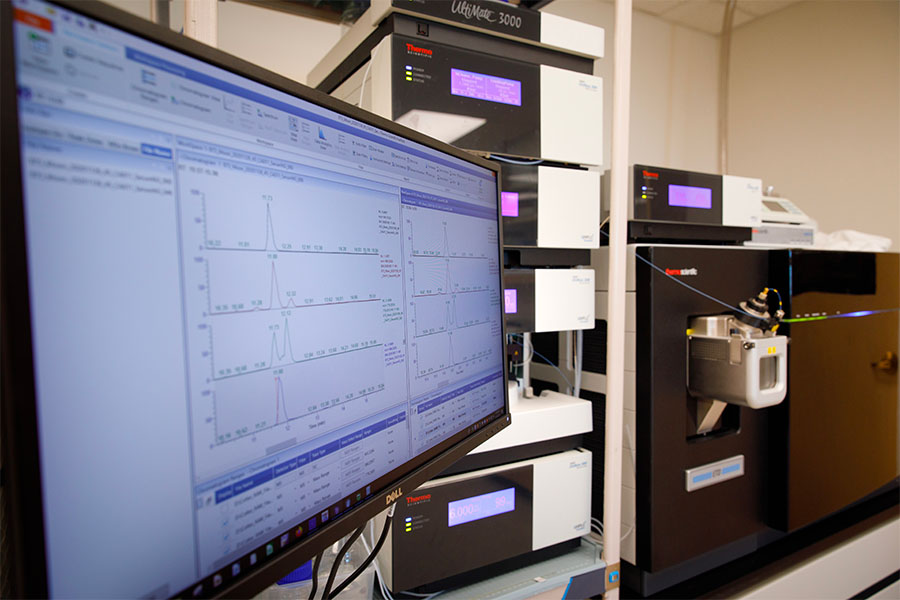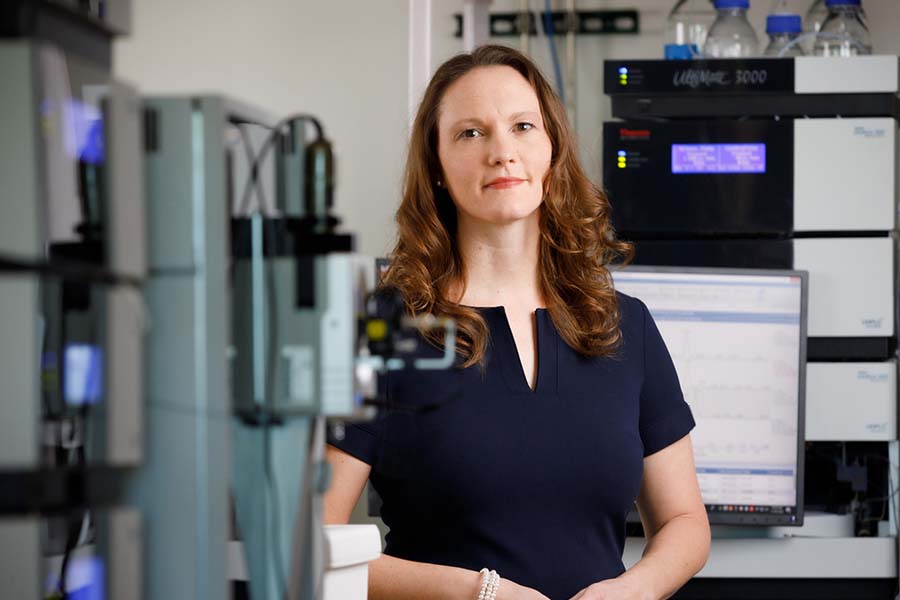CardiOmics Program

The mission of the CardiOmics Program is to catalyze state-of-the-art interdisciplinary cardiovascular research, foster technology development, provide education regarding the applications of mass spectrometry in modern cardiovascular research, and drive the generation of new knowledge that will impact cardiovascular medicine and patient care.
How to Begin
In keeping with the CardiOmics Program’s mission to collaborate with the greater community of UNMC and the Center for Heart and Vascular Research, we encourage inquiries concerning potential collaborations.
To initiate a collaboration:
- Contact Dr. Rebekah Gundry to discuss potential collaborations. During the first meeting we will discuss the science. This meeting is meant to be an open scientific exchange to review background, existing data, discuss experimental strategies, and determine if the collaboration is of mutual interest and if there is a mechanism in place to cover the costs.
- If there is mutual interest to move forward with a project, a scientist in the program will be assigned to manage the project.
- The collaborator will be invited to complete the online CardiOmics project description form and submit to the program for review.
- Together, we will define the scope of the project and develop an experimental strategy. This step may require weeks to months and multiple meetings between the investigator and program scientists.
- The program scientist will provide a collaboration agreement form and a financial agreement form to the collaborator for approval.
- All projects must be funded before any work can begin. Specifically, salary support for the program scientist must be in place and consumables for the project must be purchased and delivered to the program laboratory.
Questions We Can Help You Answer
We can develop a targeted, quantitative mass spectrometry assay that does not require antibodies.
We have the expertise to maximize proteome coverage for heart and vascular tissue - which are challenging to prepare by traditional methods.
We have state-of-the-art methods for enrichment and identification of many different types of modifications.
If so, don't forget about the critical role that glycans play in the process. While glycans have been historically understudied due to challenges in their analyses, we have developed state-of-the-art methodologies to quantify hundreds of glycans from cells, tissues, and fluids. Beyond inflammation, glycans are involved in nearly every physiological process, so ask us how can help you integrate glycomics into your studies.
Examples of Workflows and Opportunities
- Custom targeted quantitative mass spectrometry assays for proteins of interest for nearly any mammalian protein. No antibodies required and multiplexing possible!
- Quantitative discovery analyses of whole cell, tissue, ECM, and fluid proteomes.
- Qualitative analyses of protein post-translational modifications.
- Quantitative analysis of N-glycans released from human proteins from simple or complex samples. O-glycans are a future capability.
- Consultation and experimental design for grant applications and publications.
Contact
All interactions with the CardiOmics Program are collaborative. Please reach out to Associate Director, Melinda Wojtkiewicz to learn how the program can help you with your research.

Rebekah L. Gundry, PhD
Director
